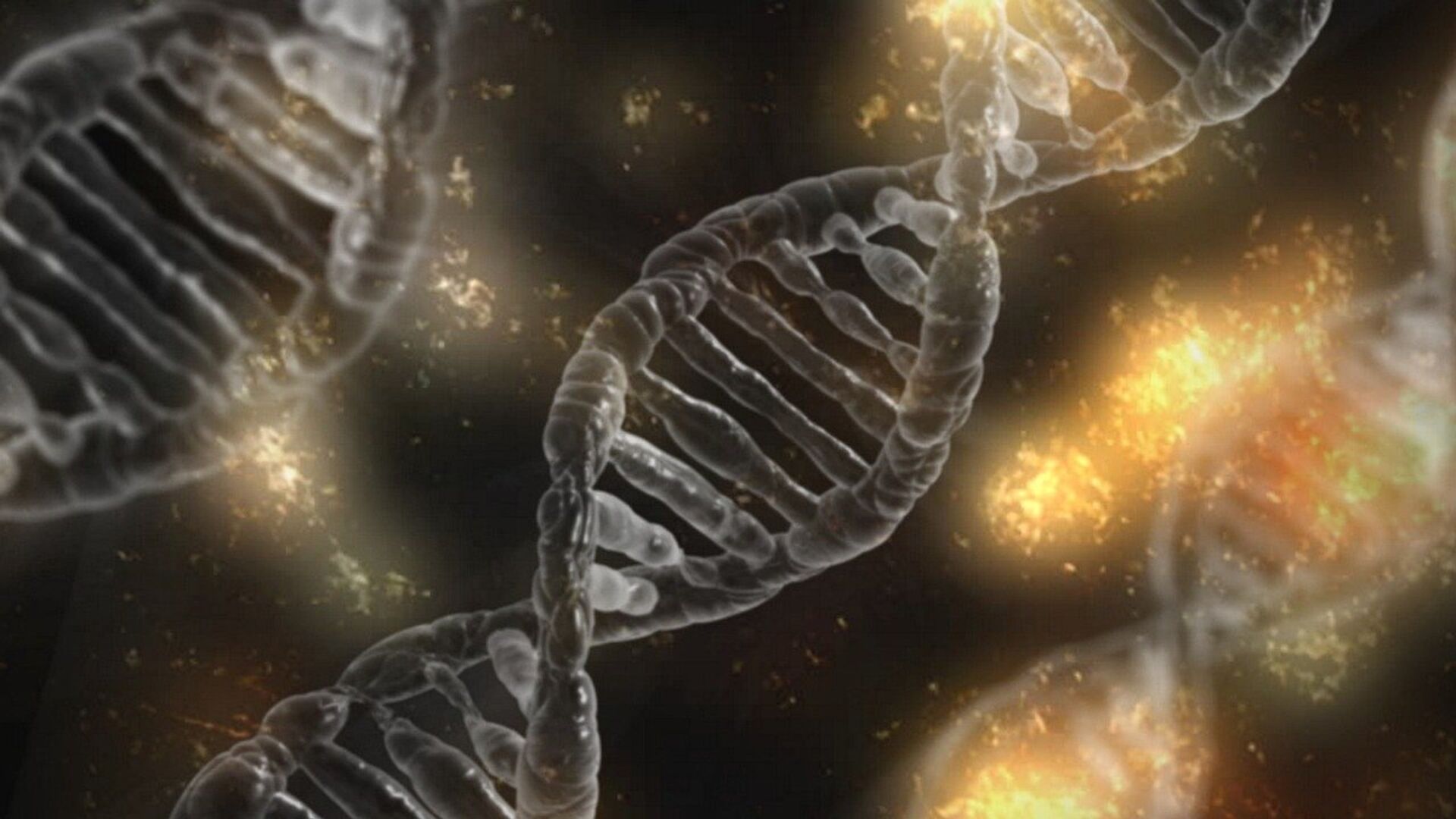https://sputnikglobe.com/20220307/study-suggests-possible-genetic-disposition-to-severe-covid-19-cases-1093670738.html
Study Suggests Possible Genetic Disposition to Severe COVID-19 Cases
Study Suggests Possible Genetic Disposition to Severe COVID-19 Cases
Sputnik International
At the onset of the COVID-19 pandemic, scientists suggested the SARS-CoV-2 virus might be so deadly because it provokes an immune system overreaction called a... 07.03.2022, Sputnik International
2022-03-07T21:36+0000
2022-03-07T21:36+0000
2022-03-07T22:23+0000
covid-19
blood clots
genetics
study
https://cdn1.img.sputnikglobe.com/img/105130/97/1051309722_0:0:1280:720_1920x0_80_0_0_ecdb89ab30e0176ff49c86221ec76b34.jpg
The cause of some severe cases of COVID-19 could be linked to genetics, a massive new study has found.According to the study, the results of which were published in Nature on Monday, 16 genetic variants in patients’ DNA are connected to the causes of their hospitalization with COVID-19. Those genes include some related to blood clotting, immune response, and intensity of inflammation. The study is based on genetic samples from more than 57,000 patients in intensive care units (ICUs) due to symptoms of COVID-19.The study also confirmed a previous discovery by the same team of seven other genetic variations that also contribute to severe COVID-19."It is now true to say that we understand the mechanisms of Covid better than the other syndromes we treat in intensive care in normal times - sepsis, flu, and other forms of critical illness. COVID-19 is showing us the way to tackle those problems in the future,” he added."It is potentially possible in future that we will be able to make predictions about patients based on their genome at the point of presenting (for) critical care," Baillie said, adding that “we can't know if these medicines will work until we try them in people."The blood clotting gene, called “Factor 8,” is one also tied to the most common form of hemophilia, a disease that prevents blood from clotting and wounds from scabbing over.Ironically, the rollout of some COVID-19 vaccines has also suffered due to rare cases of blood clots developing in patients.Another study also published in Nature on Monday found that an infection by SARS-CoV-2, the virus that causes COVID-19, can cause the brain’s gray matter to shrink, impacting smell and memory processing, among other functions. The study is based on data from 785 people between the ages of 51 and 81 who contributed brain scans to the UK Biobank imaging repository.Let's stay in touch no matter what. Follow our Telegram channel to get all the latest news: https://t.me/sputniknewsus
Sputnik International
feedback@sputniknews.com
+74956456601
MIA „Rossiya Segodnya“
2022
Sputnik International
feedback@sputniknews.com
+74956456601
MIA „Rossiya Segodnya“
News
en_EN
Sputnik International
feedback@sputniknews.com
+74956456601
MIA „Rossiya Segodnya“
Sputnik International
feedback@sputniknews.com
+74956456601
MIA „Rossiya Segodnya“
covid-19, blood clots, genetics, study
covid-19, blood clots, genetics, study
Study Suggests Possible Genetic Disposition to Severe COVID-19 Cases
21:36 GMT 07.03.2022 (Updated: 22:23 GMT 07.03.2022) At the onset of the COVID-19 pandemic, scientists suggested the SARS-CoV-2 virus might be so deadly because it provokes an immune system overreaction called a “cytokine storm.” However, they now believe a number of factors could cause severe infections, including autoantibodies present in the blood due to autoimmune disorders.
The cause of some severe cases of COVID-19 could be linked to genetics, a massive new study has found.
According to the study, the results of which were
published in Nature on Monday, 16 genetic variants in patients’ DNA are connected to the causes of their hospitalization with COVID-19. Those genes include some related to blood clotting, immune response, and intensity of inflammation. The study is based on genetic samples from more than 57,000 patients in intensive care units (ICUs) due to symptoms of COVID-19.
The study also confirmed a previous discovery by the same team of seven other genetic variations that also contribute to severe COVID-19.
"Our latest findings point to specific molecular targets in critical COVID-19. These results explain why some people develop life-threatening COVID-19, while others get no symptoms at all. But more importantly, this gives us a deep understanding of the process of disease and is a big step forward in finding more effective treatments,” Kenneth Baillie, consultant in critical care medicine at the University of Edinburgh and one of the study’s authors, told
reporters on Monday.
"It is now true to say that we understand the mechanisms of Covid better than the other syndromes we treat in intensive care in normal times - sepsis, flu, and other forms of critical illness. COVID-19 is showing us the way to tackle those problems in the future,” he added.
"It is potentially possible in future that we will be able to make predictions about patients based on their genome at the point of presenting (for) critical care,"
Baillie said, adding that “we can't know if these medicines will work until we try them in people."
The blood clotting gene, called “Factor 8,” is one also tied to the most common form of
hemophilia, a disease that prevents blood from clotting and wounds from scabbing over.
"Blood clotting is one of the main reasons why patients with COVID-19 develop a shortage of oxygen. So, that's potentially targetable to prevent those clots from forming," Baillie noted.
Ironically, the
rollout of some COVID-19 vaccines has also suffered due to
rare cases of blood clots developing in patients.
Another study also
published in Nature on Monday found that an infection by SARS-CoV-2, the virus that causes COVID-19, can cause the brain’s gray matter to shrink, impacting smell and memory processing, among other functions. The study is based on data from 785 people between the ages of 51 and 81 who contributed brain scans to the UK Biobank imaging repository.
Let's stay in touch no matter what. Follow our Telegram channel to get all the latest news: https://t.me/sputniknewsus 
